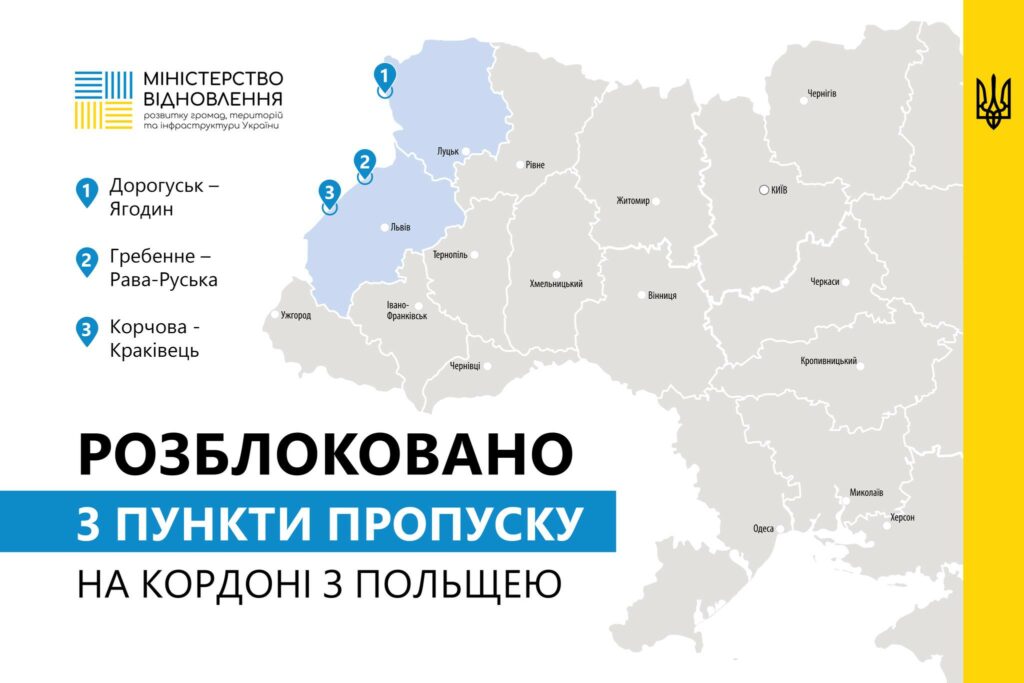The Ministry of Reconstruction disclosed the details of the agreements with the Polish protesters

Polish carriers unblocked the movement of trucks at several checkpoints on the border with Ukraine. The Ministry of Reconstruction explained how it was possible to reach an agreement with the protesters.
The Minister of Infrastructure of Ukraine Oleksandr Kubrakov held a conversation with his Polish colleague Dariush Klimczak, the Ministry of Reconstruction reported.
The key topic of the negotiations was the signing of an agreement between the Ministry of Infrastructure of Poland and Polish protesters to unblock the border, namely three checkpoints: “Dorogusk – Jagodyn”, “Grebenne – Rava-Ruska” and “Korchova – Krakowiec”.
According to Kubrakov, at the end of December, Ukraine and Poland agreed on a list of measures to unblock the border. For its part, Ukraine has practically fulfilled everything it promised, emphasized the Deputy Prime Minister for Reconstruction.
In turn, the Polish ministry reached an agreement with the protesters. In particular, it is about seeking compensation for carriers who lost eastern markets due to the Russian invasion of Ukraine. In addition, checks will be strengthened to prevent cabotage, and systems will be created to control the transport services of Ukrainian companies.
The agreements with the protesters include, among others, measures previously agreed at the ministerial level of both countries, namely:
• Creation of a separate pass in the online queue for empty trucks on “Yagodin – Dorogusk”. Technically, this possibility is available. The effectiveness of the solution will be assessed as soon as stable traffic is restored at the checkpoint.
• Opening of the checkpoint “Ugryniv – Dolgobychuv” for empty trucks. This was also done.
• Launch of a pilot project at the “Nyzhankovichi – Malhovice” point without registration in the electronic border crossing queue. The pilot will last one month, after which its effectiveness will be evaluated.
Earlier, the ministries agreed to launch a joint Working Group to analyze the situation on the two-way transportation market and ensure effective customs and border control – the first meeting was held on January 8. The result of cooperation will be a joint action plan at the level of ministries to balance the two-way transportation market and reduce queues at the borders.




